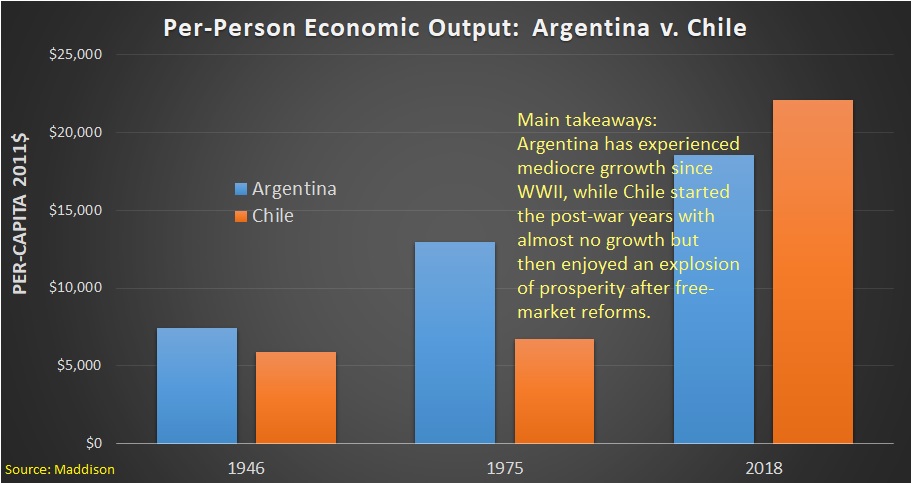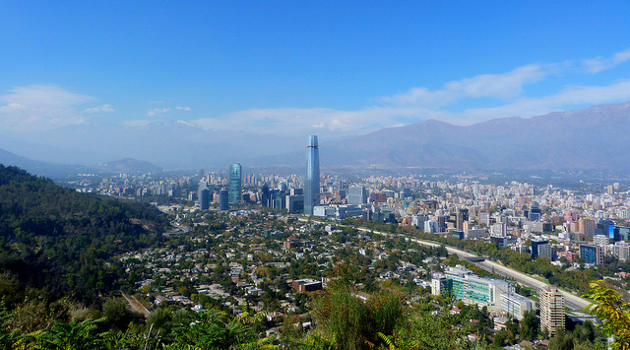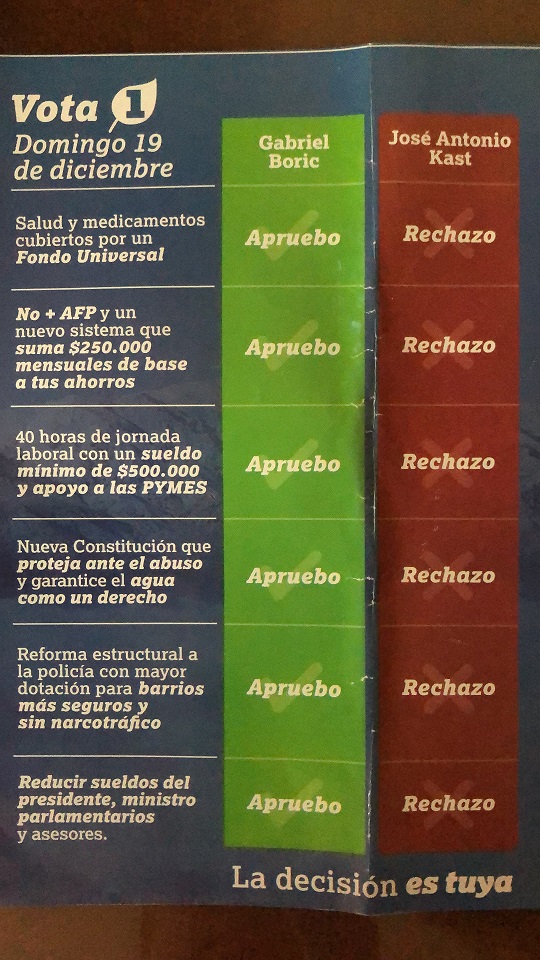I explained a few days ago that Sunday’s presidential runoff in Chile should be viewed as the most important election of 2021.
This is because the left’s candidate, Gabriel Boric, wants to turn Chile into Venezuela, as I mention in this radio interview with Ross Kaminsky.
For some reason, you only hear my voice during this Zoom discussion, which means I don’t even have a face good enough for radio.
But let’s set aside that technical glitch and focus on Mr. Boric’s agenda.
Here’s a flyer that a campaign worker gave me as I was walking around Santiago yesterday.
It’s in Spanish, but one of my Chilean friends translated. Here are Boric’s economic proposals.
- Government-run health care (not a good idea).
- Repealing the private pension system (not a good idea).
- 40-hour work week (not a good idea).
- Higher minimum wage (not a good idea).
- Industrial policy (not a good idea).
There was one attractive proposal. He’s proposing to cut the pay of politicians. But that will yield trivial savings if it happens and the odds of it actually happening are laughably small.
Also, he says he wants to fight crime, which is good (in theory).
His worst idea, though, is not on this flyer. If you go to his website, you’ll find this passage in his economic plan (as translated by Google): “The tax reform will collect on the order of 8% of GDP under the regime.”
He is not overly specific on how he will collect so much additional money, but the website mentions higher income taxes, green taxes, and the imposition of a wealth tax.
All of which sounds like a recipe to drive entrepreneurs and investors (and/or their money) out of the country.
To understand the radical nature of his plan, tax revenues in Chile currently grab about 21 percent of the country’s economic output according to the OECD – so Boric is advocating a 38-percent increase.
By comparison, Biden’s tax plan in the U.S. is awful, but he’s “only” proposing a 4-percent increase in the tax burden (about 1 percent of GDP).
P.S. Since Ross and I were comparing Argentina and Chile, here’s a chart I put together using the Maddison database.

P.S. Given that Chile’s free-market reforms have been especially beneficial to poor people (see here, here, here, and here), I wonder if they understand how Boric’s election would threaten their upward mobility.
———
Image credit: Gonzalo Baeza | CC BY 2.0.


